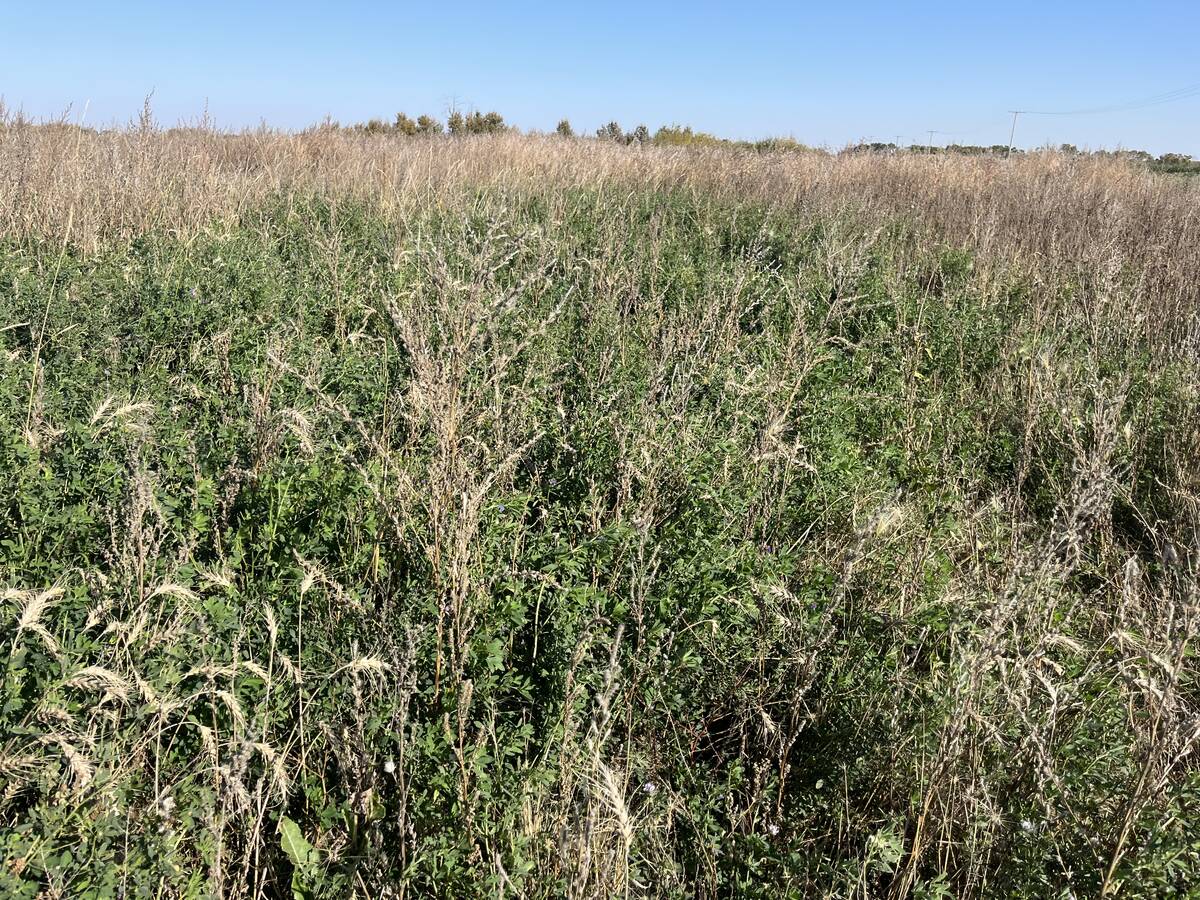DENVER, Colo. – When it comes to pushing forward national livestock identification in the United States, bottlenecks exist among producers who fear it as an intrusion and auction markets that argue it is expensive and too much work.
Schering-Plough Animal Health offers a vaccination certification program that is tied into electronic identification.
Called Tri-Merit, the program is offered to producers through veterinarians using the company’s products. Producers can enter their vaccination records on-line through the company website.
Each person selects a password and user name for confidentiality. Vets verify the information. So far about 30,000 animals have been registered with the system.
Read Also

Dormant seeding forages frees up farmer time and gets ahead of weeds
Dormant seeding isn’t common practice and can appear daunting, but there are some techniques to give Manitoba farmers an edge
Veterinarian Mark Spire of Schering-Plough said the new system improves data availability.
“When I was a practicing veterinarian there were so many times I got my records on a snuff can lid or on a sleeve,” he said.
Rancher Greg Carey of Kansas is yard manager at an auction market and helped run a sale of 1,100 age and source verified calves with complete vaccination details using the Tri-Merit system. The calves earned a $10 premium per hundredweight because they had complete records and individual identification.
However, he knows many auctions are not anxious to co-operate because installing electronic tag readers and recording additional information is considered expensive and labour intensive.
David Barz, a South Dakota veterinarian who participated in the program, placed electronic ID tags on 10,000 calves for 100 cow-calf producers. However, this was only 15 percent of his client list.
“There was no real interest in any of my clients to tag their own calves and use the information.”
Some producers have started tagging their cows because they felt the premium earned was worth the effort.
“We have to convince them this little plastic ear tag is not their enemy,” Barz said.















